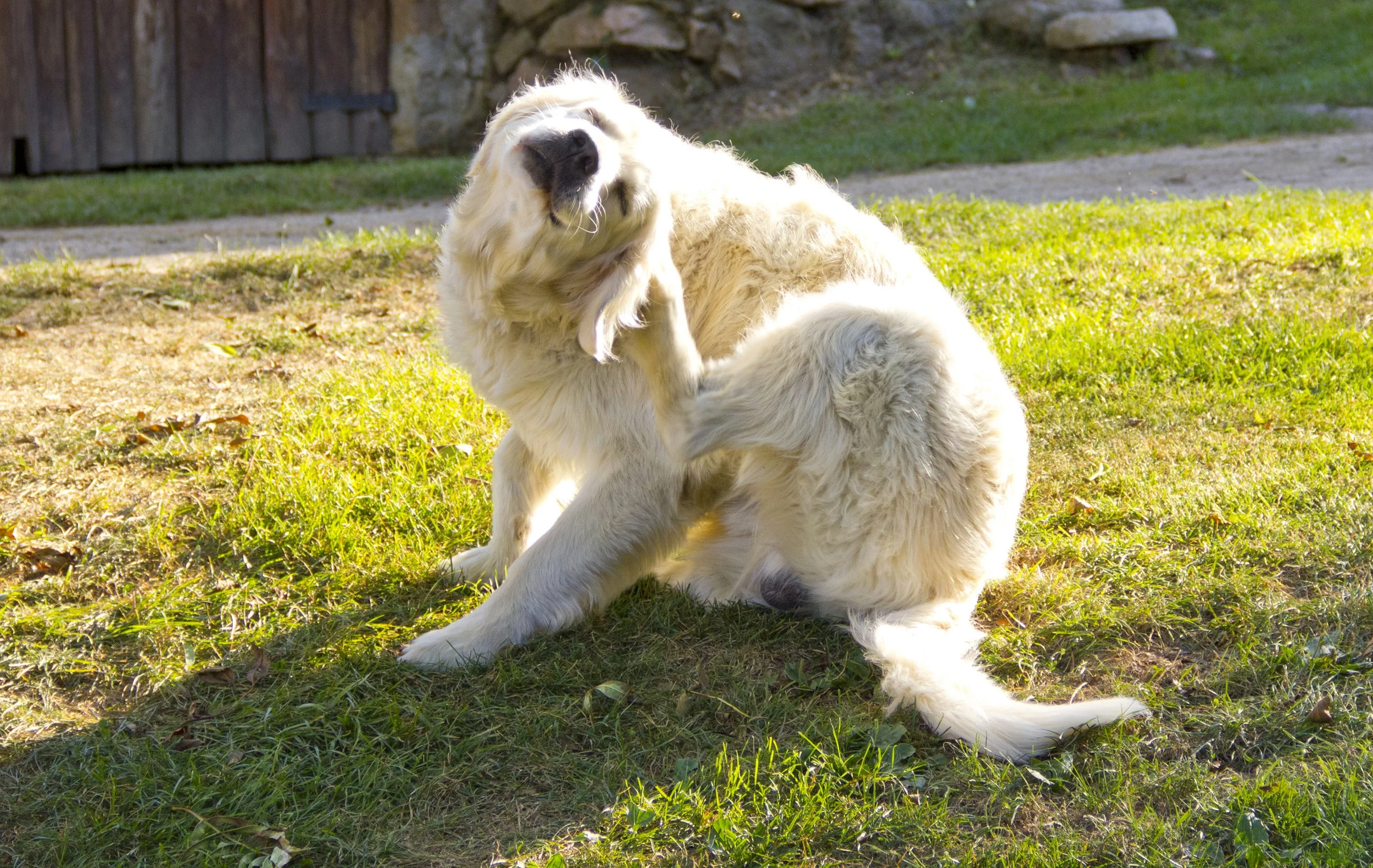7 Tips for a healthy dog coat
We all want our dogs to have a shiny, clean, healthy coat of hair. After all, the general condition of your dog’s skin and coat can be an indicator of their overall health. Whilst nutrition and health have an influence over your dog’s coat from the inside, regular grooming and skin care can also impact on the cleanliness and overall appearance. We have 7 simple tips that you can follow to help keep your dog happy and healthy and their skin and coat in optimal condition.
What does a healthy coat look like?
A healthy coat on a dog should be soft, shiny and smooth. It should not be greasy, dry or brittle. There should be no bald spots or an unpleasant smell. Healthy skin on your dog should be supple and clear. It should not be flaky, bumpy, red, irritated or itchy.
1. Feed them a complete and balanced diet
Nutrition is an important part of pet care and has a big impact on maintaining a healthy coat. A complete and balanced diet is essential for your dog’s health and wellbeing.
At WoofPurNay, we offer a wide range of premium pet food products to suit your dog’s individual needs. Different diets can be offered based on your dog’s unique lifestyle, age, size or health requirements. Our vets can provide you with the best advice about what diet is most suitable for your dog.
2. Offer regular bath time
Keeping your dog clean and healthy is an important part of pet care. Washing your dog when needed is a great way to remove unwanted odours and clean away any dirt or loose hair. For dogs with skin conditions, washing may also be part of their medical treatment plan recommended by your vet.
Some dogs require more frequent bathing if they spend a lot of time outdoors, become dirty more often or if they suffer from skin allergies. Use a gentle shampoo formulated for dogs or prescribed by your vet, followed with a nourishing conditioner to leave their coat soft, smooth and shiny.
3. Schedule time for grooming
Regular brushing and grooming at home helps keep your pet’s coat in great condition by removing loose hair and preventing the formation of knots and hairballs. How often you brush and groom your pet will differ based on their coat type, length and recent activities.
Grooming your pet is a great opportunity to check for fleas, ear mites, cuts, lumps or bumps and is also a great bonding activity between you and your pet.
4. Provide parasite prevention
Parasites such as fleas, ticks and mites are a common cause of compulsive itching and skin irritation. This can cause damage your dog’s coat and skin and have an impact on their overall health. Whilst ticks are quite visible to the naked eye, often large infestations of fleas are present before they become noticeable. Mites are microscopic, which makes them difficult to see.
Prevention is always the best medicine and the good news is that there are a number of parasite treatments available such as tablets and chews, topical medications, annual injections, shampoos and sprays. Our vets can help you determine the most suitable products and program to protect your pet from parasites. A great time to discuss parasite control is during your pet’s annual health check.
5. Offer regular exercise
All dogs need exercise to burn calories, stimulate their minds and stay healthy. Regular exercise not only enhances your dog’s overall health and happiness but can also improve their outward appearance, including the quality of their skin and coat. Regular exercise can also help to prevent boredom, which can lead to behavioural problems. Supervised playtime is also a great form of exercise.
Your dog’s exercise needs will vary based on their breed, lifestyle, age, size or health requirements. Ask your vet if you have any questions about exercising your dog.
6. Manage any skin conditions
Skin conditions can be quite uncomfortable for your dog and can result in a range of symptoms such as itching, skin sores, lumps and even hair loss. Skin conditions can vary from mild to severe and many require veterinary treatment to resolve them and prevent them from becoming more serious.
Whilst the occasional itch is fine, if you notice your pet scratching, rubbing, biting or licking themselves excessively it’s important to take them to the vet.
Common skin conditions in pets include allergies, parasites, dandruff, bacterial and fungal infections. Skin irritations can also be caused by an underlying health condition, so it is important to seek veterinary advice if you have an itchy pet.
For more information about common skin conditions in pets click here.
7. Regular health checks
Annual health checks are a great way to keep your pet in their best possible shape. They also help your vet identify and treat any health concerns before they become serious. A full examination allows your vet to take a closer look at your pet, whilst also giving you the opportunity to ask about any questions or concerns you might have.
At Woofpurnay we recommend annual health checks for all pets. Puppies and kittens require additional visits to give them their best possible start and commence their vaccination program. For senior pets, we recommend bi-annual health checks to meet your pets changing health care needs and ensure early detection and treatment of disease.
A shiny, clean and healthy coat is a great indicator of your dog’s overall health. By offering a complete and balanced diet, regular exercise, grooming and health routine you are well on your way to ensuring your dog is happy, healthy and looking great. If you have any questions or concerns about your dog’s skin or coat health, please call us on 03 8784 4444.




